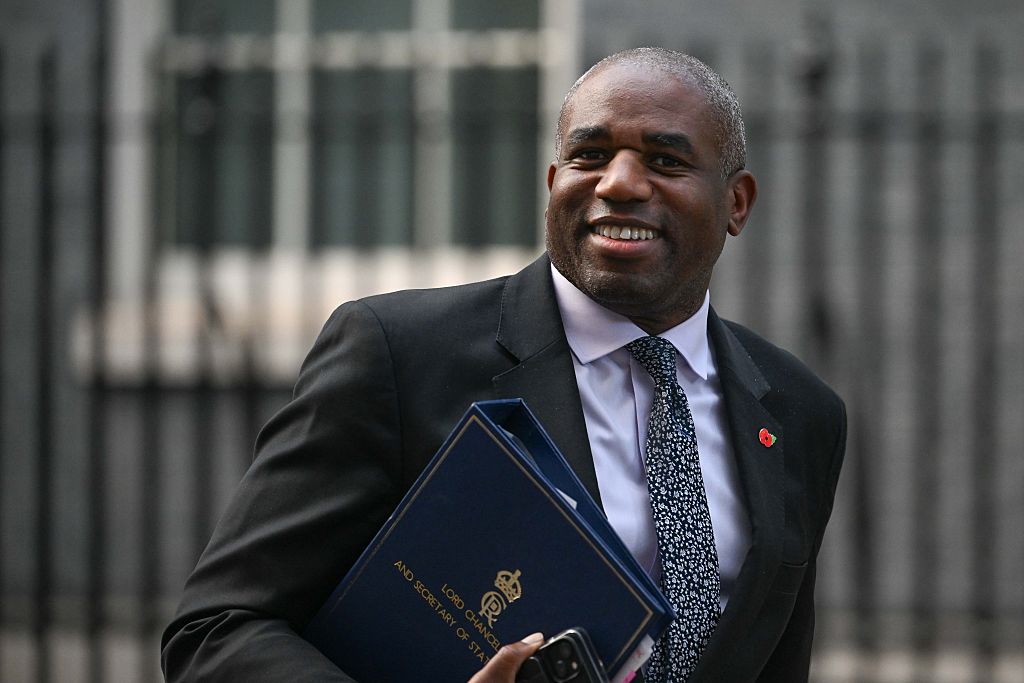In June 2020 the impact of Covid led some to argue that trial by jury should be temporarily suspended. David Lammy, who was at the time the shadow justice secretary, strongly opposed the idea. He tweeted:
‘Jury trials are a fundamental part of our democratic settlement. Criminal trials without juries are a bad idea.’
It now appears that Lammy thinks the time has come, and that he is the man, to destroy this fundamental part of our democratic settlement. He intends the destruction to be permanent. A memo seen by the Times says he is preparing to end jury trials except for murder, rape or manslaughter cases. The sole justification for this vandalism appears to be efficiency savings.
There is of course not the slightest democratic mandate for such a constitutional upheaval
How did we get here? Last December the government appointed Sir Brian Leveson, who had in the past advocated for restrictions on the right to jury trial, to produce a report on ‘efficiency in the criminal courts.’ Leveson duly recommended that defendants should lose the right to a jury in any case in which the likely sentence on conviction would be three years or less. That would mean no juries in most cases of theft, fraud, burglary, handling stolen goods, money laundering, ‘ABHs’ (assaults occasioning actual bodily harm), domestic violence, harassment, stalking, drug possession with intent to supply, as well as many sexual offences and GBHs (grievous bodily harm). Instead of trial by jury for such cases – which form the vast majority of those currently heard in the Crown Court – we would have trial by a slightly glorified Magistrates Court, consisting of a circuit judge sitting with two Justices of the Peace.
Even Levenson had his limits though. Efficient though it might be, AI should not, he wrote, ‘wholly[!] supplant the role of judges in sentencing, even if this offered the theoretical potential of increasing throughput in the courts.’ And – somewhat grudgingly – he conceded that juries should continue to try any case where the likely sentence exceeded three years imprisonment.
Yet it appears Leveson’s attack on juries did not go far enough for Lammy, who seems to have jettisoned both his principles and his backbone on his appointment as Justice Secretary. His proposals lack even Leveson’s figleaf of lay involvement provided by a couple of magistrates. Guilt will instead be determined by an inevitably exhausted, over-worked judge sitting alone.
There is of course not the slightest democratic mandate for such a constitutional upheaval. One searches in vain through the vapid prose of the Labour party manifesto for some hint that it would abolish any, let alone almost all, jury trials. It was not there because juries are one part of the crumbling edifice of criminal justice that still retains a degree of public confidence. An admission that it intended to virtually abolish trial by jury would have been a vote loser.
Not only are the plans unwanted they are also unprincipled.
Lammy once believed – and even worse probably still believes – that juries were conspicuously fair to minorities, and that that fairness was something to be treasured. In 2017 he produced a report into the treatment of ethnic minorities in the criminal courts. Unlike Magistrates and other parts of the system Lammy gave juries a largely clean bill of health. ‘Our jury system may be centuries old,’ he wrote, ‘but it is still fit for purpose today. Successive studies have shown that, on average, jury verdicts are not affected by ethnicity.’ The debate and deliberation required for 12 men and women to arrive at a verdict, he said ‘acts as a filter for prejudice.’ Now it seems avoiding prejudice matters less than increasing throughput, as though justice was susceptible to some sort of five year plan to increase tractor production.
If Lammy’s plans are implemented ordinary people will be almost entirely removed from the justice system. It is very rare for individual jurors to face criticism for their verdicts. Judges on the other hand – already under constant attack over their sentencing decisions – will now be lambasted over their verdicts in every high-profile case. The likely outcome will be increased cynicism and distrust of judges and the courts. Any trial with a remotely political angle will be seen as an establishment stitch-up.
Juries do not guarantee justice – no system can do that – yet there remains truth in Lord Devlin’s argument that they remain a bulwark against tyranny because ‘no tyrant could afford to leave a subject’s freedom in the hands of 12 of his countrymen.’ We will miss that bulwark when it is gone.







Comments